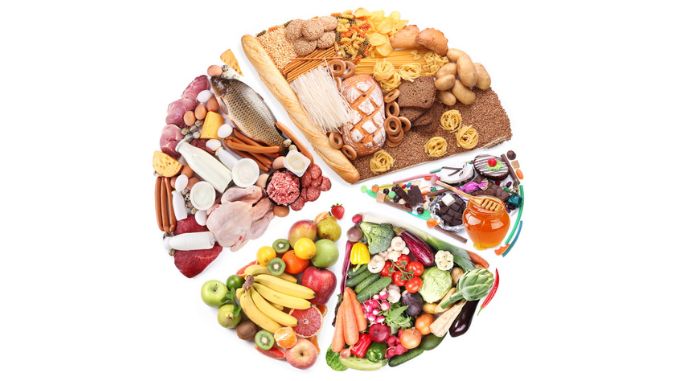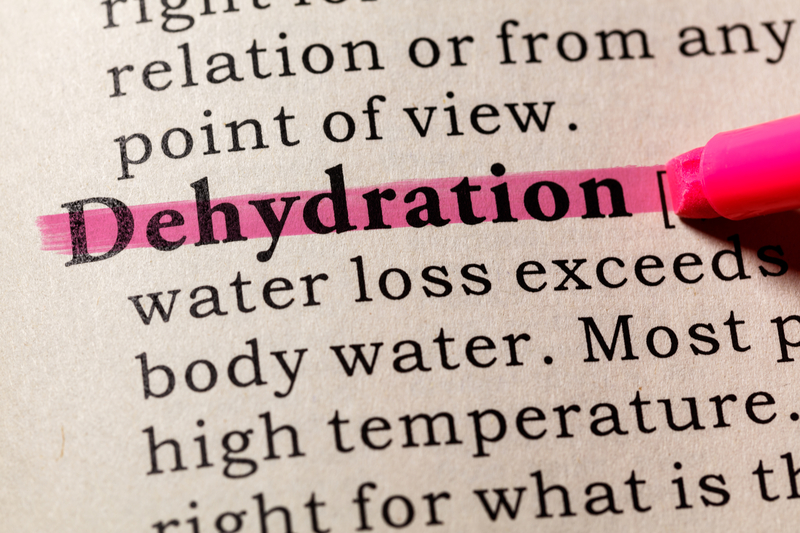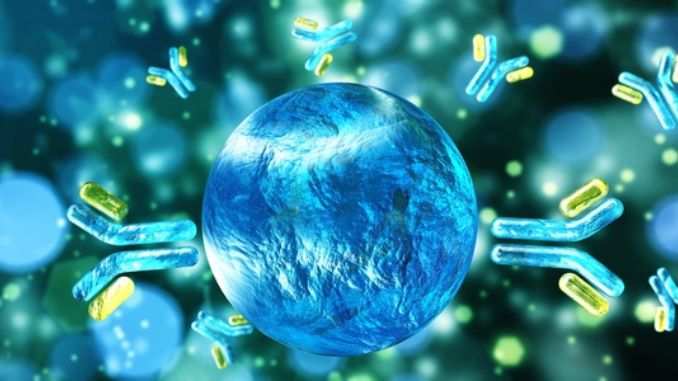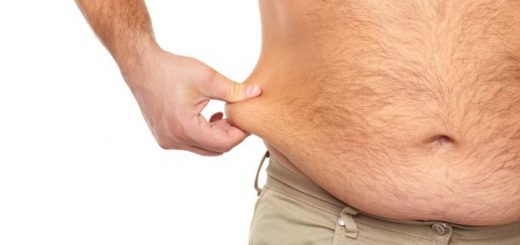The Surprising Benefits of Water Fasting for Weight Loss

Last updated on May 15th, 2025 at 03:36 pm
Water Fasting is fasting in which an individual consumes only water and no other types of food or drinks for a set period. This fasting type has been practiced for centuries and has been found to have many potential health benefits, including weight loss, improved insulin sensitivity, and increased autophagy. While water fasting can be challenging and requires careful preparation and monitoring, it can be a powerful tool for achieving better health and wellness. However, it is important to note that it is unsuitable for everyone. A healthcare professional should guide someone before undertaking the challenging water fasting practice. It is always recommended to consult with a healthcare professional before starting any fasting or dietary regimen.
Definition of Water Fasting
Water fasting is a type of fasting that involves temporary abstinence from all food and beverages except for water. During a water fast, a person consumes only water and abstains from all other foods and drinks. Water fasting is also known as a “juice fast” or “juice cleansing.”
It is a popular method of detoxifying the body and can help with weight loss, mental clarity, and improved overall health. By eliminating food from the diet, the body can use its energy to cleanse itself of toxins and restore balance. During a water fast, it is important to drink plenty of water to stay hydrated and to rest as much as possible. Before beginning water fasting, one should consult a medical professional as there are health risks associated with this type of fasting.
Surprising Benefits of Water Fasting
While some may view water fasting as an extreme practice, several potential benefits exist. Here are some surprising benefits of water fasting for weight loss and improved health.
One significant benefit of it is weight loss. Since it involves drastically reducing calorie intake, the body will often burn stored fat as a source of energy, which can lead to weight loss.
Water Fasting may also help lowering blood pressure, a common risk factor for chronic diseases such as heart disease and stroke. Studies have shown that fasting can help reduce blood pressure and improve cardiovascular health.
In addition to reducing high blood pressure, it has been shown to improve insulin sensitivity and blood sugar control, which may help reduce the risk of type 2 diabetes. It has also been shown to reduce inflammation, which is a contributing factor to many chronic diseases.
Benefits of Water Fasting:
1. Reduced Calorie Intake
Since water fasting involves abstaining from food and other calorie-containing drinks, it naturally reduces calorie intake. This can help create a calorie deficit and promote weight loss.
Reducing calorie intake is one of the most important health benefits of water fasting because it can improve body weight, reduce inflammation, and improve overall health. Additionally, decreased calorie intake has been associated with a lower risk of chronic diseases such as diabetes and heart disease.
2. Reduced Inflammation
Reduced inflammation is one of the most important health benefits of water fasting because it helps reduce pain and discomfort caused by chronic inflammation.
Chronic inflammation can lead to various diseases and health issues, such as arthritis, heart disease, diabetes, and cancer. Reducing inflammation can help reduce the risk of developing these diseases and relieve some of the associated pain and discomfort.
3. Improved Metabolism
Improving the body's metabolism can help optimize overall health and well-being. Improved metabolism is one of the most important health benefits of water fasting because it boosts the body's energy levels, helps to break down fat, and aids in proper digestion. It also helps to regulate blood sugar levels and aids in weight loss.
4. Detoxification of the body
Water fasting helps cleanse your body of toxins and impurities that build up over time. When you fast, your body shifts from digestion to detoxification, allowing it to rid itself of harmful toxins more effectively.
How long can you water fast?
The length of time that you can water fast depends on a few different factors. Medical experts do not recommend watering fast for more than three days without supervision. If you decide to water fast for longer than three days, it’s important to ensure that you are doing it under the guidance of a medical professional. The length of the fasting period also depends on your health and well-being. If you are pregnant or have chronic health conditions, it’s important to check with your doctor before attempting water fast. Doctors do not recommend water fasting if you are underweight, as it can cause further health complications.
How much weight can you lose by water fasting?
Water fasting is a popular way of losing weight quickly, but it's important to understand the risks and potential benefits before diving in. In general, you can expect to see significant weight loss when you fast with water. Most studies show that people lose an average of 1-2 pounds daily when they water fast. This rate can vary depending on body composition, activity level, and health status. For example, more active people may experience less weight loss than sedentary people.
It's also important to note that not all of the weight you lose will be fat. During a water fast, your body will break down fat, muscle, and glycogen (stored sugar) for energy. So while you will lose weight, it won't all be from fat. The weight you lose can also depend on how long you water fast. If you fast for a shorter period — say, 24-48 hours — then you're more likely to lose a few pounds of water weight and glycogen stores.
On the other hand, if you fast for longer periods — such as 5-7 days — your body will tap into its fat stores to fuel itself, and you'll see more significant weight loss. Water fasting is an effective way to lose weight quickly, but taking the necessary precautions and being mindful of the potential side effects is important. Make sure to consult with your doctor before trying any fasting regimen.
How to Safely Start Water Fasting
A healthcare professional should guide someone before undertaking the challenging water fasting practice. Before starting a water fast, it’s important to ensure that you are in good health and not a risk of any complications.
Preparation
Preparing for water fasting is important to get the most out of your fast. You should do several things to ensure you are ready for the fast. Before engaging in water fast, it's a good idea to allow your body to adjust by eating smaller meals or fasting for some days during the 3-4 days.
Guidelines and Tips for Safe Water Fasting:
1. Talk to your healthcare provider
It’s important to consult with your healthcare professional before starting a water fast, particularly if you have any medical conditions or are taking any medications.
2. Start Slowly
If you’ve never water fasted before, start with a shorter fast (e g, 24 hours) before attempting a longer water fast. It is important to start slowly and gradually build up to a longer fast as your body becomes more accustomed to the process.
3. Set a goal
Determine what type of fast you want to do and how long you will do it for. Decide if you want to do a juice fast, a dry fast, or a water-only fast. Setting a goal when doing water fasting is important because it gives you a clear purpose and direction in pursuit of improved health and well-being. A goal will motivate and encourage you to stick with fasting. It will also help to keep you focused and on track throughout your water fasting journey. Additionally, setting a goal will provide structure and clarity, allowing you to plan and measure the success of your fast.
4. Stay Hydrated
Ensuring your body is properly hydrated before starting the water fast is important because water is the only source of fluids during a water fast. Drink plenty of water leading up to the start of the fast so that your body is well-hydrated and ready to go. This will help your body adjust more easily and make the fast easier on your body.
5. It is important to prepare mentally and emotionally for the fast
Know your goals, and ensure you know of any potential risks associated with water fasting. Ensure you are in the right frame of mind and have the support system to help you through the fast.
6. It is important to prepare nutritionally for the fast
Make sure to eat a balanced diet with plenty of vitamins and minerals before beginning the fast, as this will help your body to adjust more quickly. Also, consult with your doctor before beginning any fasting program. There may be certain health conditions that could be negatively affected by water fasting.
7. Listen to your Body
Pay attention to your body during the fast, and don’t push yourself too hard. If you feel lightheaded, dizzy, or experience other symptoms, immediately break the fast, eat something, and seek medical advice.
8. Type of Exercise
Determine what exercise you will do during your fast, and ensure it is safe during a water fast. While some people may exercise light during water fasting, it’s important to determine what exercises are safe and appropriate to avoid potential health risks.
It is recommended to engage in light to moderate exercises during water fasting, such as stretching, yoga, or walking, and to avoid high-intensity activities.
9. Set up a family and friends support system who can help you during the fast
10. Break the Fast Slowly
When it’s time to break the fast, it’s important to do so slowly and with foods that are easy to digest. Start with small portions of fruits and vegetables and gradually introduce other foods. It is important to prepare for the end of the fast. Have a plan for how you will break your fast, as this will be essential for helping your body transition back into a normal eating pattern.
Preparation is essential for any fasting, especially water fasting. Ensure you are properly hydrated and nutritionally balanced before starting the fast and mentally and emotionally prepared. Also, plan for when you will break the fast to ensure a smooth transition back into your normal eating patterns.
Health Risks of Water Fasting
While water fasting can have potential health benefits, it also comes with a risk that should be considered before attempting a fast. Here are some of the potential risks associated with water fasting:
1. Dehydration
Dehydration is one of the health risks associated with water fasting, a type of diet used for weight loss. Water fasting involves completely abstaining from food for a period, usually from 24 hours to several weeks. During this time, the only source of nourishment comes from water. Dehydration is a very serious health risk when fasting water because of the lack of food. The body needs to be supplied with nutrients and energy from food to remain healthy and function properly. When you're not taking in enough calories from food, your body will try to conserve energy by slowing down some of its functions. This can lead to a decrease in your body's ability to regulate fluids, resulting in dehydration.
2. Nutrient Deficiencies
Water fasting is a form of intermittent fasting where you only consume water for the duration of the fast. When you fast, you essentially abstain from all food or drink for a set period. While this can lead to weight loss, it also means that you aren’t consuming any of the essential nutrients and vitamins your body needs for optimal health and functioning. Nutrient deficiencies are among the most common health risks of water fasting. Nutrient deficiencies can occur when your body lacks the macronutrients (carbs, proteins, and fats) or needs micronutrients (vitamins and minerals).
When your body doesn’t have access to these nutrients, it can lead to various health problems, including fatigue, muscle weakness, anemia, and even organ damage. It’s important to note that nutrient deficiencies can occur even if you’re following a healthy diet. However, they can be exacerbated if you rely on water fasting as your primary source of nutrition, as your body won’t be getting any of the essential nutrients it needs
3. Weakness and Dizziness
This is because when you’re fasting, you’re depriving your body of essential nutrients such as carbohydrates, proteins, and fats. Without these nutrients, your body is forced to use stored energy, leading to feelings of weakness and dizziness. Additionally, your body may start to break down muscle tissue for energy, which can cause further weakness and lightheadedness.
4. Muscle Loss
Muscle loss is one of the health risks associated with water fasting. When fasting, your body uses stored energy from fat and muscle to get through the fasting period. If you are fasting for a prolonged period, the body will begin to break down muscle for energy, leading to muscle loss and a slower metabolism. This can be a dangerous health risk, leading to loss of strength and overall health.
5. Compromised Immune Function
When you don't consume enough calories and micronutrients, your body can't make enough white blood cells, the body's main defense against infection. Without enough white blood cells, your body is more susceptible to infection and illness. In addition, your body needs sufficient energy to fight off viruses and bacteria, so without the energy from food, it may not be able to defend itself properly. Also, since water fasting involves limiting or eliminating your intake of certain essential nutrients, your immune system may not get the vitamins and minerals needed to function properly. For example, vitamin C is essential for keeping your immune system in top shape, but it may suffer if you're not getting enough of it from food.
6. Water fasting can also weaken the immune system, making you more susceptible to illnesses
This is because when you're not consuming food, your body has to find other ways to get energy. This means the body has to break down muscle and fat stores for energy, resulting in weight loss. But, when the body breaks down these stores, it also breaks down the immune system's cells. So, when the body is fasting, it means that the immune system is not getting the same nutrition, minerals, vitamins, and other nutrients that it normally does from food. As a result, the immune system can weaken, and you may become more susceptible to illnesses.
7. Worsening of medical conditions
If you have a medical condition, water fasting can make it worse. It is important to approach water fasting with caution and under the guidance of a healthcare professional or with medical supervision. Water fasting is inappropriate for everyone, and those with certain medical conditions, pregnant and breastfeeding women, and children should not attempt it. It is important to listen to your body during a fast and break it if you experience negative symptoms.
8. Hyponatremia
A potentially serious condition that can occur during water fasting. It is a condition where the sodium levels in your blood become too low, leading to various symptoms such as confusion, dizziness, fatigue, headaches, nausea, and muscle cramps.
It is important to approach water fasting with caution and under the guidance of a healthcare professional. Water fasting is inappropriate for everyone, and those with certain medical conditions, pregnant and breastfeeding women, and children should not attempt it. It is important to listen to your body during a fast and break it if you experience negative symptoms.
Conclusion:
In conclusion, water fasting has been found to have several benefits for weight loss, including promoting fat burning, reducing inflammation, improving insulin sensitivity, and reducing appetite. However, it’s important to approach water fasting cautiously, particularly for individuals with a history of eating disorders or medical conditions. Water fasting should always be done under medical supervision to ensure it’s safe and appropriate for the individual’s health. It’s also important to note that water fasting is not a sustainable long-term weight loss solution. Individuals should focus on healthy eating habits and regular physical activity to achieve lasting weight loss results.
While water fasting can be an effective tool for weight loss, it’s not suitable for everyone. Individuals should consider their food intake and potential health risks before attempting it.
Rick Kaselj MS, is a leading kinesiologist and injury specialist as well as co-creator of the best-selling Unlock Your Hip Flexors program. Rick creates exercise programs that help people heal injuries and eliminate pain, so they can go back to living a full, active, healthy life.






















